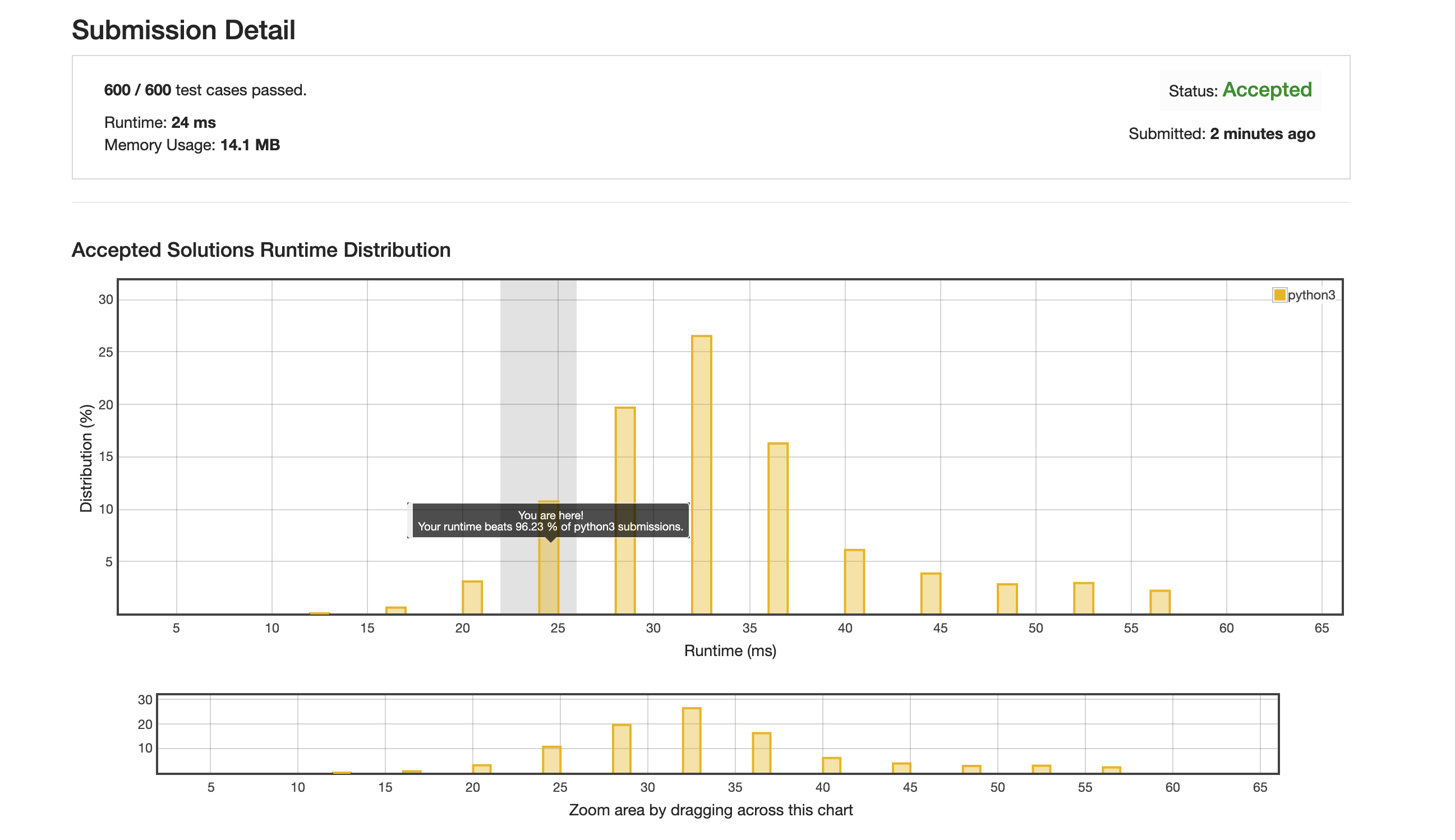Notice
Recent Posts
Recent Comments
| 일 | 월 | 화 | 수 | 목 | 금 | 토 |
|---|---|---|---|---|---|---|
| 1 | ||||||
| 2 | 3 | 4 | 5 | 6 | 7 | 8 |
| 9 | 10 | 11 | 12 | 13 | 14 | 15 |
| 16 | 17 | 18 | 19 | 20 | 21 | 22 |
| 23 | 24 | 25 | 26 | 27 | 28 | 29 |
| 30 |
Tags
- 더현대서울 맛집
- 편스토랑 우승상품
- SW Expert Academy
- 백준
- Real or Not? NLP with Disaster Tweets
- github
- 프로그래머스 파이썬
- 우분투
- ubuntu
- 코로나19
- 금융문자분석경진대회
- 맥북
- AI 경진대회
- Baekjoon
- gs25
- Git
- Docker
- programmers
- leetcode
- dacon
- 데이콘
- Kaggle
- 편스토랑
- 프로그래머스
- PYTHON
- ChatGPT
- 파이썬
- 자연어처리
- hackerrank
- 캐치카페
Archives
- Today
- Total
솜씨좋은장씨
[leetCode] 190. Reverse Bits (Python) 본문
728x90
반응형

Reverse bits of a given 32 bits unsigned integer.
Example 1:
Input: 00000010100101000001111010011100
Output: 00111001011110000010100101000000
Explanation: The input binary string 00000010100101000001111010011100 represents
the unsigned integer 43261596, so return 964176192
which its binary representation is 00111001011110000010100101000000.Example 2:
Input: 11111111111111111111111111111101
Output: 10111111111111111111111111111111
Explanation: The input binary string 11111111111111111111111111111101 represents
the unsigned integer 4294967293, so return 3221225471
which its binary representation is 10111111111111111111111111111111.Note:
- Note that in some languages such as Java, there is no unsigned integer type. In this case, both input and output will be given as signed integer type and should not affect your implementation, as the internal binary representation of the integer is the same whether it is signed or unsigned.
- In Java, the compiler represents the signed integers using 2's complement notation. Therefore, in Example 2 above the input represents the signed integer -3 and the output represents the signed integer -1073741825.
Follow up:
If this function is called many times, how would you optimize it?
Constraints:
- The input must be a binary string of length = 32
Solution
class Solution:
def reverseBits(self, n: int) -> int:
binary_str = (bin(n))[2:][::-1]
answer_str = binary_str + "0"*(32-len(binary_str))
answer = int(answer_str, 2)
return answer


SOMJANG/CODINGTEST_PRACTICE
1일 1문제 since 2020.02.07. Contribute to SOMJANG/CODINGTEST_PRACTICE development by creating an account on GitHub.
github.com
'Programming > 코딩 1일 1문제' 카테고리의 다른 글
| [leetCode] 1492. The kth Factor of n (Python) (0) | 2020.10.03 |
|---|---|
| [leetCode] 374. Guess Number Higher or Lower (Python) (0) | 2020.10.02 |
| [leetCode] 234. Palindrome Linked List (Python) (0) | 2020.09.30 |
| [leetCode] 203. Remove Linked List Elements (Python) (0) | 2020.09.29 |
| [leetCode] 1417. Reformat The String (Python) (0) | 2020.09.28 |
Comments





